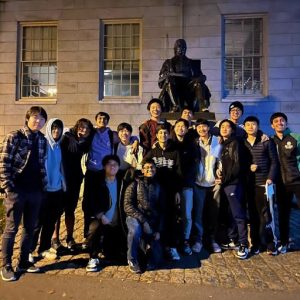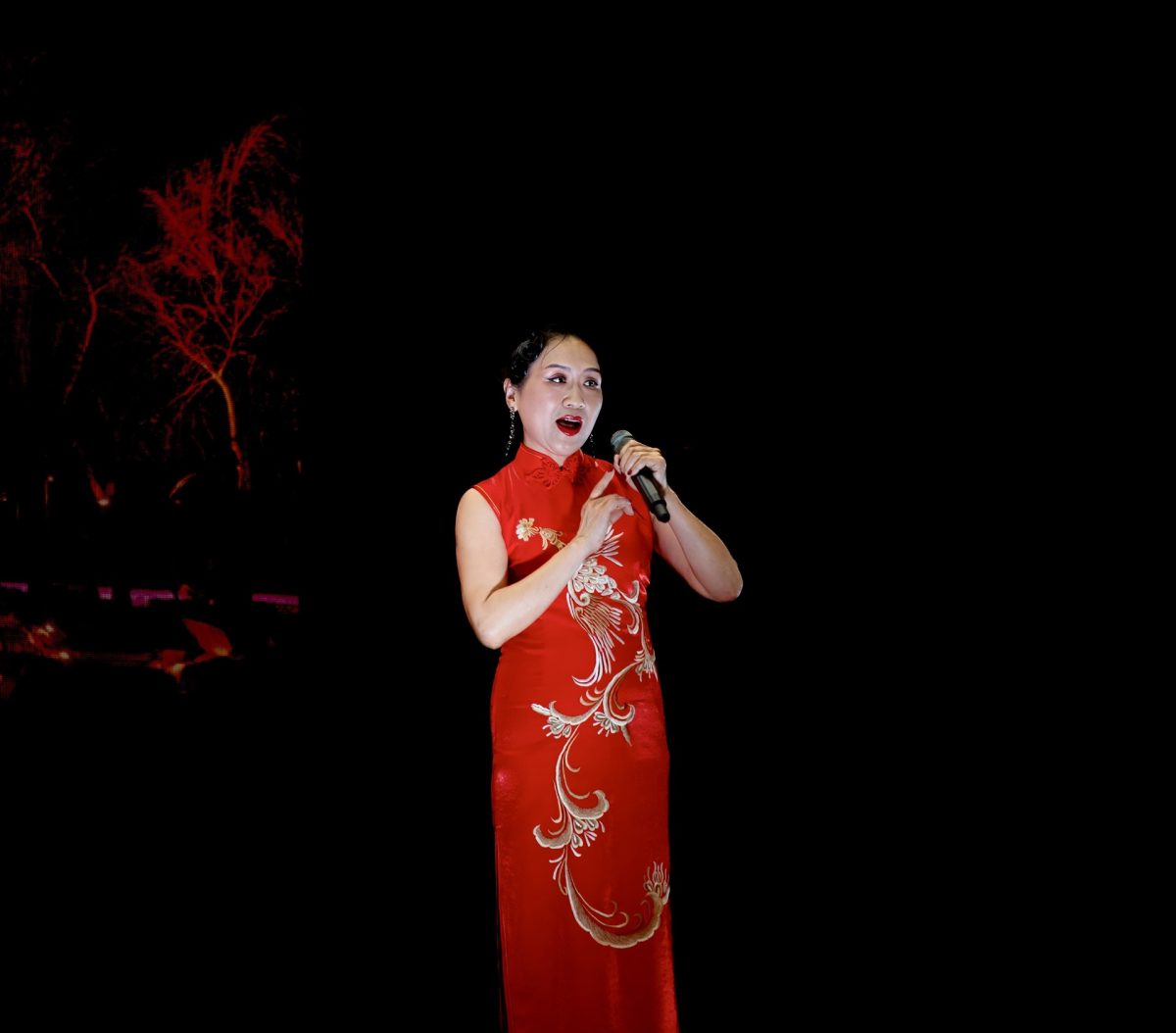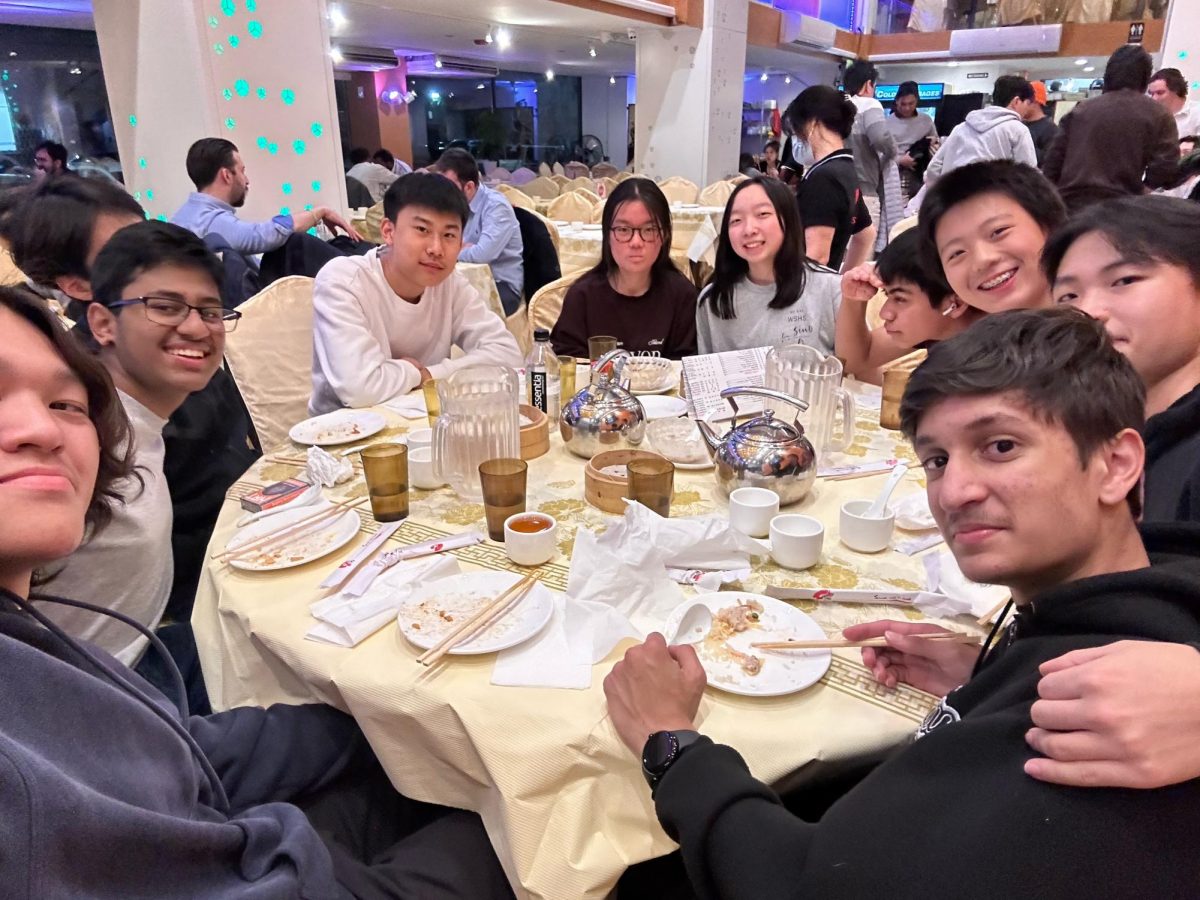Throughout the year, the White Station High School Math Team participates in various competitions. Whether they are hunkered down in the library or traveling cross-country to compete, their sponsor, Yanli Cui, Advanced Placement (AP) Pre-Calculus, AP Calculus BC and Calculus 3 teacher, guides them through it all. Cui decided to sponsor the club because of her love of math, and she hopes to foster the same appreciation in her students.
“[The math team’s] mission is … cultivating the love for math and to … build a foundation for [students’] future,” Cui said. “I start[ed] my job … because the previous president of the math team, he was taking [Advanced Placement] Calculus [BC], I was tutoring him when I was working at University of Memphis. He came to me for tutoring and … when this [position] was made available he recommended me. I love it. I love the math team.”
The math team meets once a week to prepare for competitions. In preparation, they review math concepts and take practice tests.
“At each meeting leading up to AMC … our captain would teach over one topic or we’d take … a practice test and go over problems that a lot of people missed,” Luke Meng (10) said. “And for Mu Alpha Theta and [Tennessee Mathematics Teachers Association (TMTA)], since they’re like about the math [class] that we’re taking, just by doing homework for those [classes] we’re essentially preparing for the competition. But then … we also take practice tests.”
The major competition the math team prepares for is the American Mathematics Competition (AMC). They also participate in a variety of competitions that all differ from each other.
“They’re all just tests, but some of them [are] different lengths. [In] AMC there’s 25 questions, you get 75 minutes and … you want to maximize your score to qualify for the next round,” Meng said. “Mu Alpha Theta, it’s based on … school math, like [Pre-Calculus], Algebra II, Calculus. You compete with people taking your math. TMTA is basically the same thing. At Mu Alpha Theta there’s also, like, side competitions, like Math Bowl and … there’s also a mental math competition. TMTA is just the math test.”
Certain competitions give the math team the opportunity to travel. One such competition is the Harvard MIT math tournament (HMMT) which takes place in Boston every year. While some national competitions take place in large cities like Boston, D.C., or Vegas, the math team also participates in many competitions that are local or online.
“Some take place … at the school, like the AMC, but for competitions like Mu Alpha Theta and … HMMT, HMMT usually goes to Boston and we get to visit Harvard and MIT, those campuses,” Kayden Li (11) said. “And then for Mu Alpha Theta, each year it’s different, like last year it’s Washington, D.C.; this year’s gonna be at Las Vegas.”
Though the math team strives to do well in competitions, the end goal isn’t necessarily to get first place. Having fun and enjoying the experience are also worthwhile parts of competitions.
“At first [competing] was intimidating, but it really depended on the competition, like for more prestigious math competitions like HMMT which are … international … it’s more about, like, having fun and learning rather than trying to place higher because usually other people, they may be like future math olympiads and … you can’t really compete with those people,” Li said. “It’s more about having fun.”

Being on the math team can bring benefits for students. Students learn and review new math concepts that they can use in the future regardless of what career they pursue.
“Math is so important. It’s the foundation for pretty much everything,” Cui said. “[Competing is] fun. It’s so much fun. The kids learn a lot, reinforce what they learn in class and motivate them to learn more.”
Not only do students get opportunities from math, traveling for competitions allows them to see new places that they might be interested in living after high school.
“You get to learn about, like, different cities… you get to explore the city and … it gets you in preparation for where you decide to be … after high school,” Li said. “I know like a lot of people after going to Boston for a competition, they’re like ‘Oh, wow Boston’s pretty nice, I kinda wanna go to college here.’ And you get to just try different food or different lifestyles.”
Through traveling, the math team has the opportunity to have new experiences with each other while learning about math.
“We have a lot of fun because we all have, like, common interests and it’s just like going on any other trip with your friends, except you’re learning a lot as well,” Meng said. “Overall it’s just a really enjoyable experience.”
Overall, Cui pushes the math team to achieve their goals by encouraging them.
“People here always tend to say ‘Oh, I’m not good at math.’ They have this … instilled, wrong idea already in their mind,” Cui said. “But [it] turns out, they can do it. Everybody [is] created equally, so you have the potential to do math.”




































